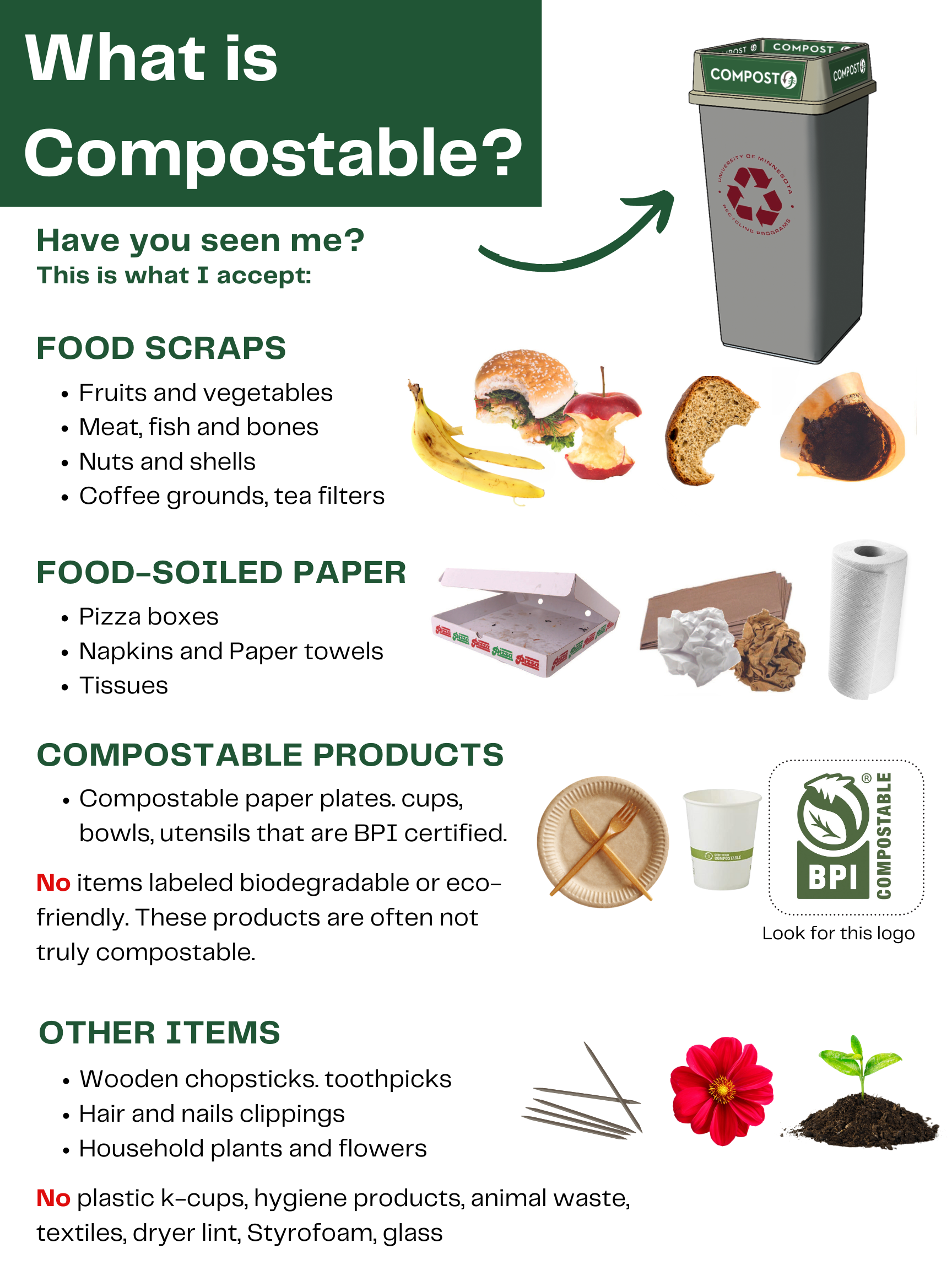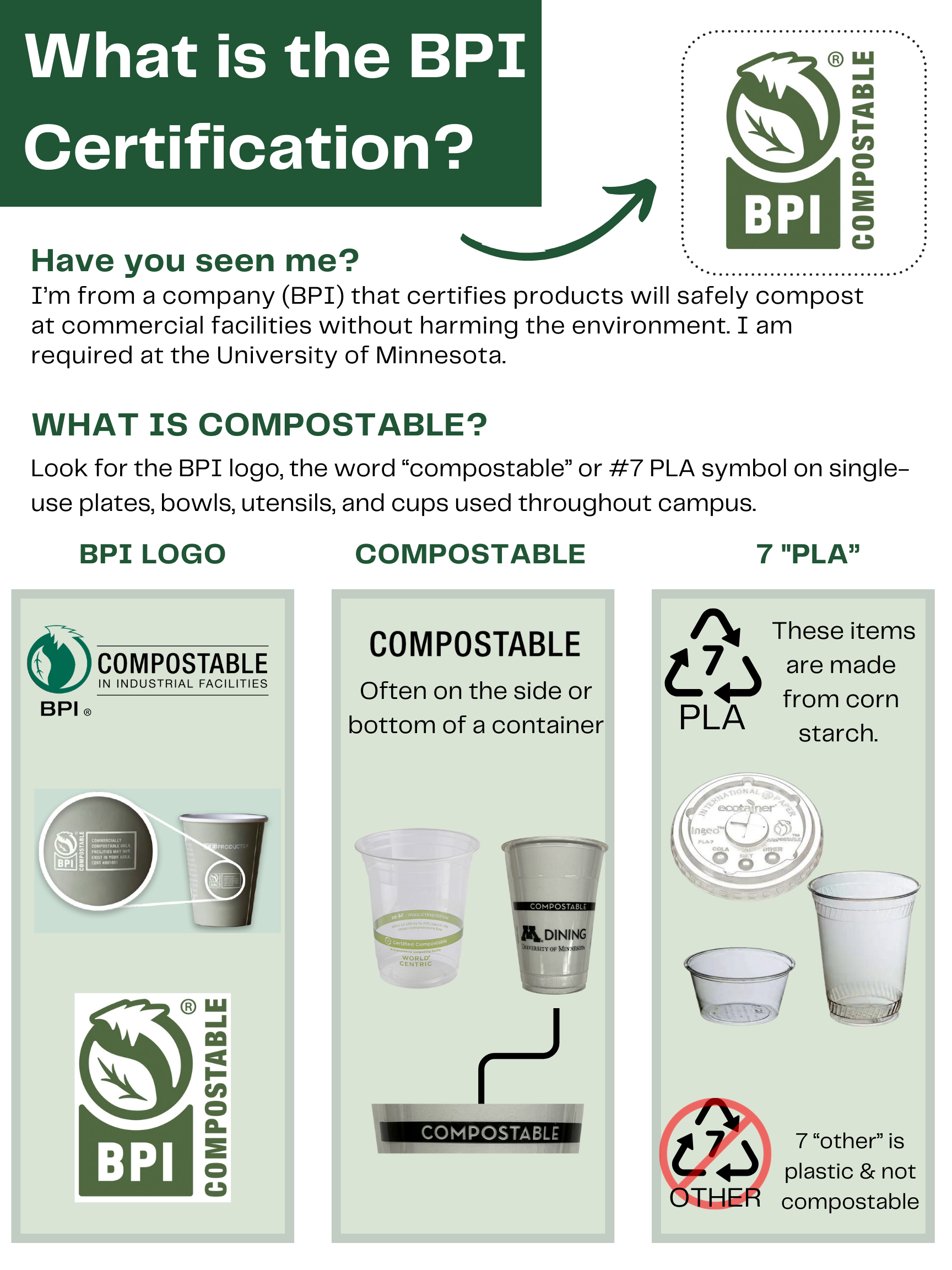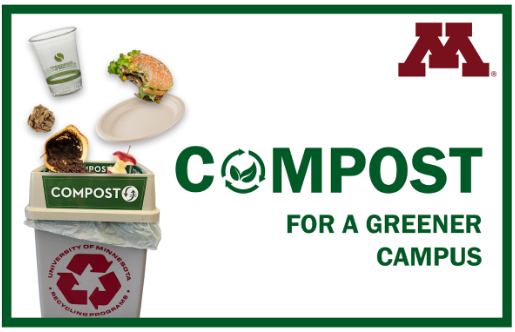The University of Minnesota Twin Cities has collected compostable materials from campus since 1990, with major expansions in 2010 and 2018. Today, an average of 200,000 pounds of compost is collected annually from on-campus dining, research facilities, and public space making UMNTC home of the most robust composting programs in the Big 10.
How is compost made?
Composting, also known as Organics Recycling, is the process of converting organic material, such as food scrap into a soil amendment. Campus compost is brought to a commercial facility, SMSC Organics Recycling Facility, where it is transformed into a nutrient-rich additive that enhances soil quality, provides essential nutrients to plants, and improves the health of Minnesota's soil.

Certified Compostable Products
Certified compostable means an item has been certified by the Biodegradable Products Institute (BPI), a third party company that ensures items can be cycled back into the soil at a commercial composting facility with no harmful effects to the environment.
Identifying Certified Compostable Items
Determining if something is compostable can be challenging but important to reduce waste. If you are ever unsure an item is compostable, it's better to throw it away rather than risk harming the environment. Products labeled as biodegradable, bio-plastic, or eco-friendly may breakdown into harmful microplastics during the composting process.

Reducing Waste on Campus
Life on campus moves fast, and remembering a reusable cup or silverware is not always possible. To help keep our campus low-waste, on-campus vendors are required to provide BPI-certified compostable items, including catering services.
Ordering mistakes can happen; if you find non-compostable serviceware on campus, please let us know at recycle@umn.edu, and we will work to correct the issue.
Why is composting so important?
Food waste reduces the efficiency at Waste to Energy Facilities and occupies valuable space in landfills. In landfills, food waste creates 30x more greenhouse gasses than other material.
Currently, the University of Minnesota Twin Cities composts 200,000 lbs of waste annually. Despite these efforts an average of 50% of compostable materials are still discarded as trash due to improper sorting by individuals

Achieving higher composting rates requires a collective effort from everyone on campus. By increasing awareness though education, hosting Zero Waste Events and utilizing the Zero Waste Purchasing Guide, we can reduce our environmental impact and enhance campus sustainability.